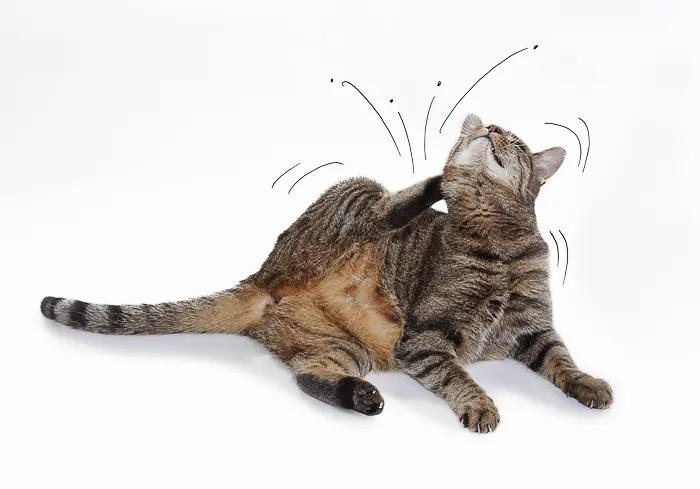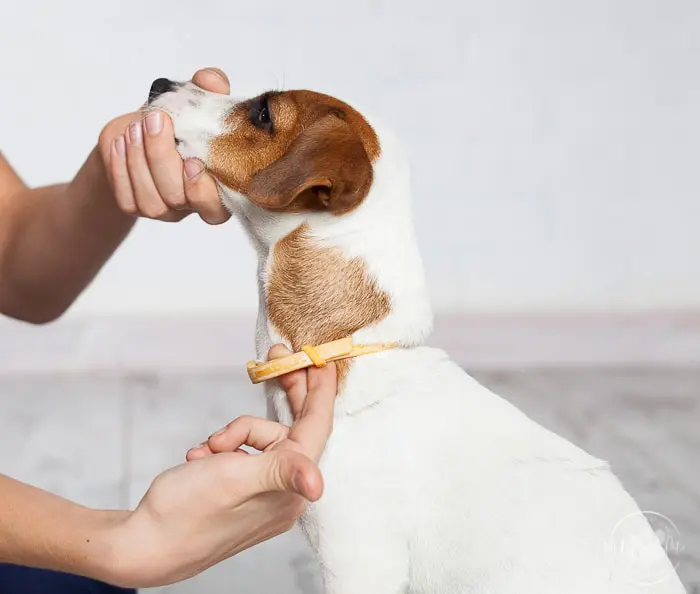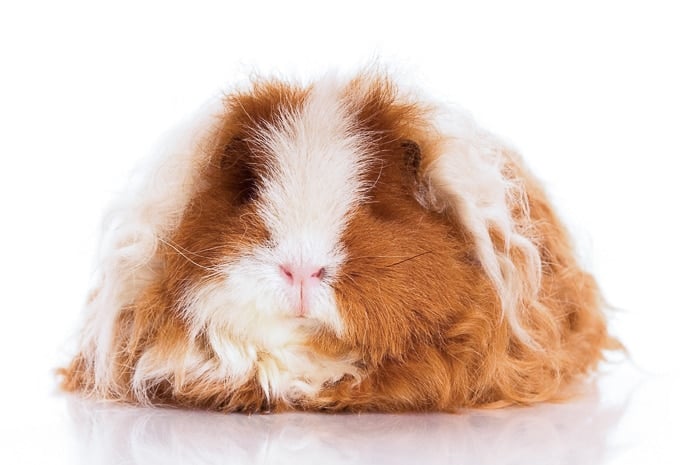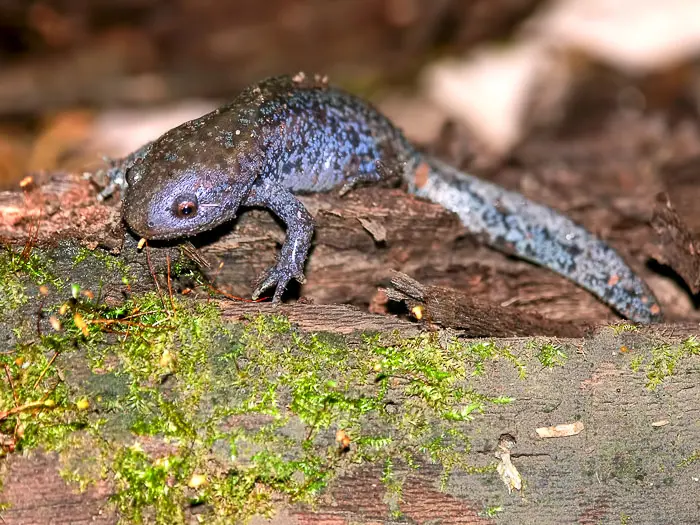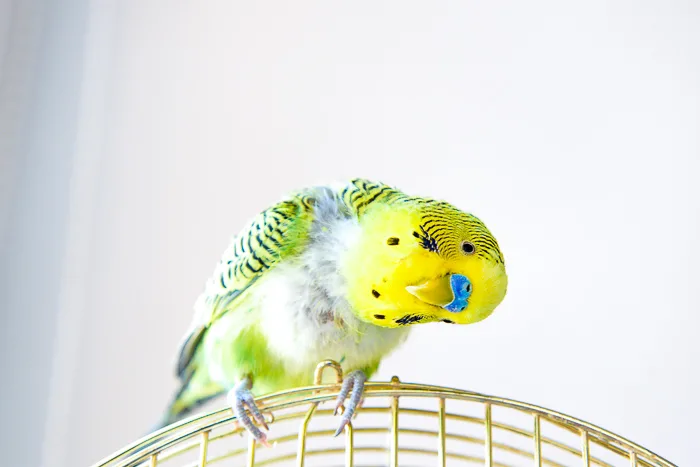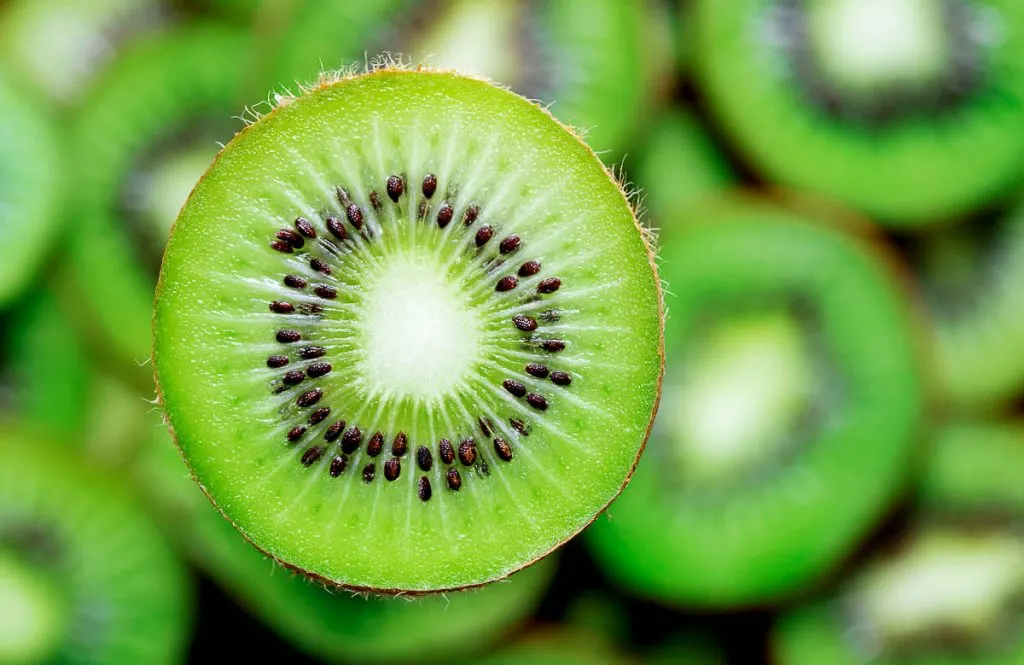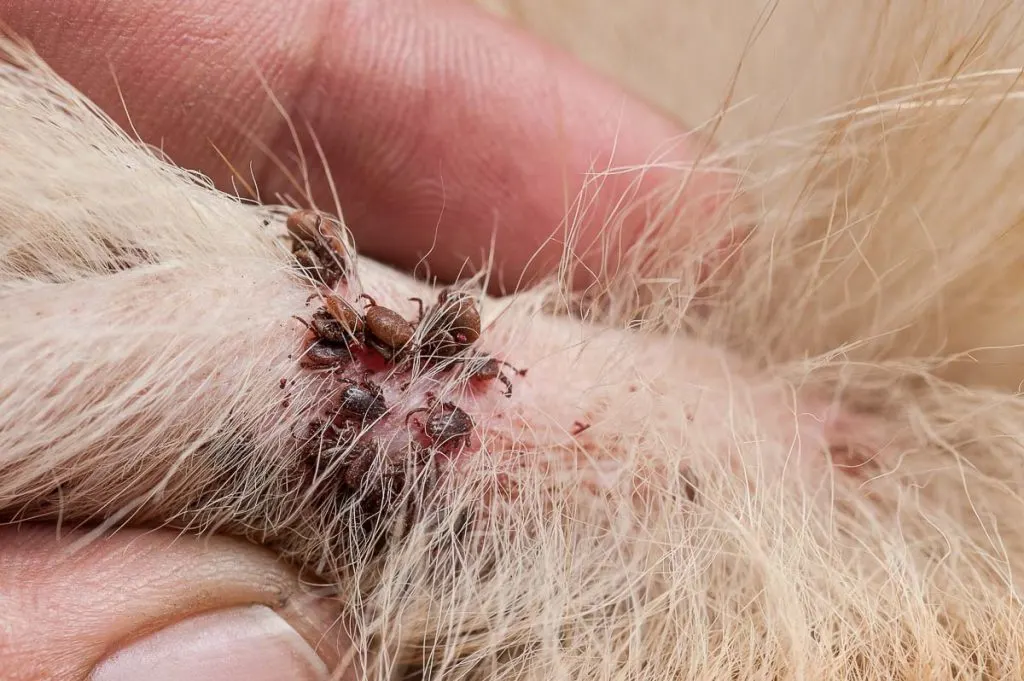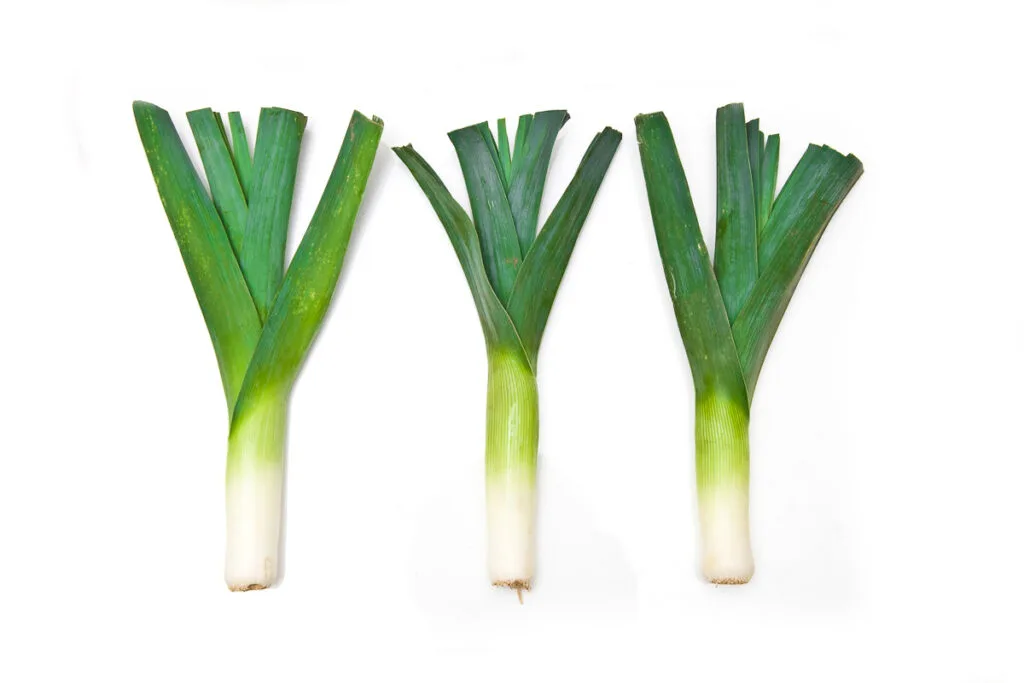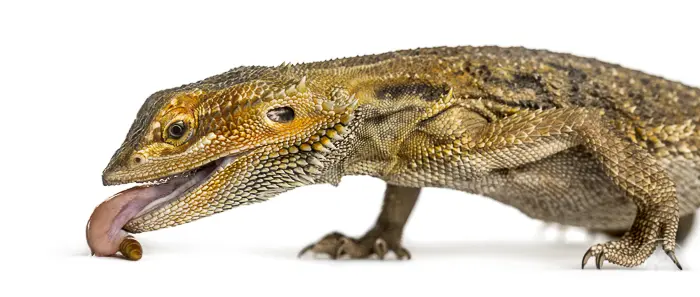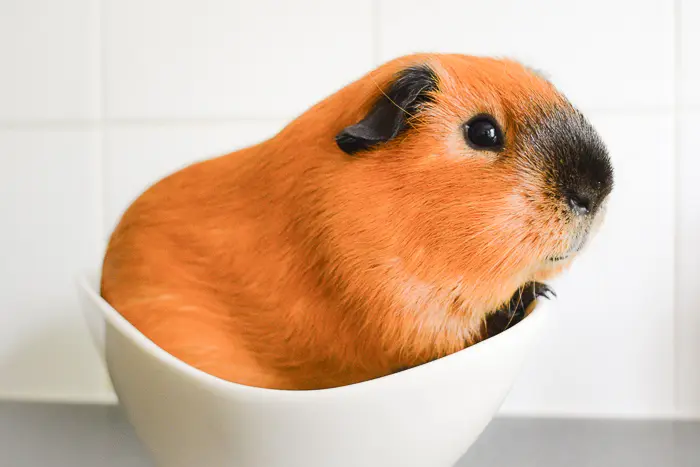Sugar gliders are one of the cutest pets. They are very sociable animals and actively use sounds to communicate, including the bark. But what does a sugar glider barking mean? And what do all their other vocalizations mean?
Dr. Jess explains the sugar glider's bark below:
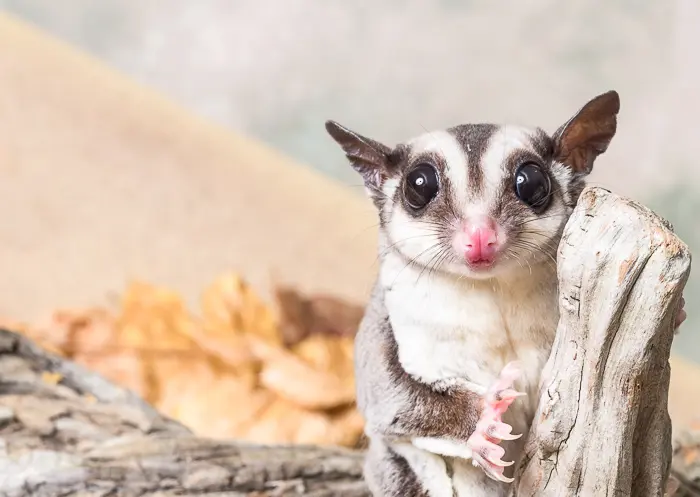
What is a Sugar Glider?
Sugar gliders are also commonly known as “sugar bears” and “honey gliders”.
They are a small cute animal that are kept in captivity as pocket pets.
Sugar gliders have large eyes, soft coats with a bark dorsal (back) stripe), and small triangular ears.
They are a part of the marsupial family (like kangaroos) and keep their babies (named joeys) in the female's pouch surrounding their abdominal area.
They have a fold of skin underneath their arms that allow them to glide in the air when their arms are outstretched.
Sugar Gliders can live 5-7 years and are social animals, easily becoming depressed without friends.
What is Barking?
A bark is a sound most commonly produced by dogs, wolves, coyotes, and seals.
These animals use this barking sound to communicate things like warning/alarm, excitement, the need for something, etc.
Under normal circumstances, sugar gliders are capable of making four primary types of sounds, including barking. The other three primary sounds are crabbing, chirping/purring, and hissing.
Why Do Sugar Gliders Bark in the Wild?
Just like a human yell, squawk, or shout can mean lots of different things, a sugar glider’s “bark” can also have quite a few different meanings. Below I have mentioned a few of the main reasons a sugar glider may bark.
In the wild, sugar gliders tend to bark as a “warning”, if a predator enters the area where their colony is currently habitating, warning other gliders of the intruder.
You may notice that all gliders in the area after a warning bark, will freeze in place. This is because in the wild, if they don’t move, a predator is less likely to see them and eat them.
They may also use the barking as part of their mating practices when trying to find a mate.
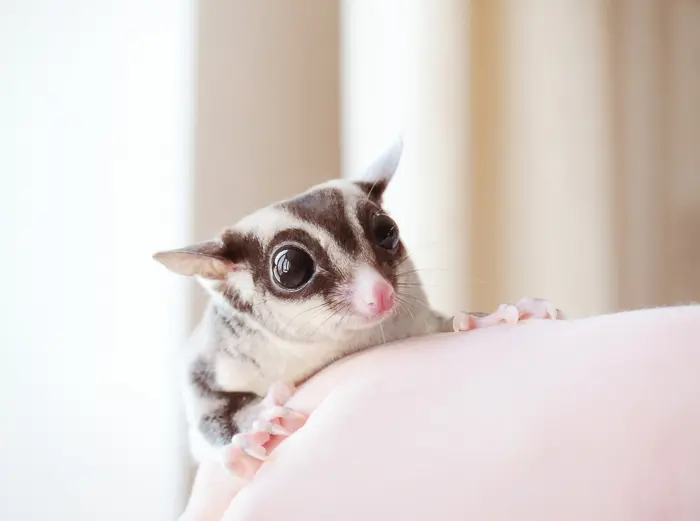
Why Do Sugar Gliders Bark in Captivity?
People talk to communicate, dogs bark to communicate, and sugar gliders do, too. The sound of a barking sugar glider is similar to a very small dog.
Expect to hear some barking if your sugar glider needs to communicate something to other sugar gliders or to you.
A sugar glider’s bark is a very sophisticated way of communication between members of the species and their attempt at communicating with us.
Even though it appears that most of the time they are wanting some kind of attention when they bark, it can also be a way of talking to each other too.
Now at home, baking may happen when they are suddenly exposed to somebody or something that they don’t know or aren’t familiar with, such as a strange person or animal or noise.
Another commonly reported reason why sugar gliders bark is simply that it’s a call to you, or other beings (humans or animals) in their vicinity.
There is usually a reason why a sugar glider is barking. Most coherent sugar gliders typically will not “bark” without a reason, even if it is a silly reason in our eyes.
Even though a sugar glider’s “bark” may sound the same to the untrained ear, it could actually mean very different things depending on the bark.
- Barking sounds like: barking from a chihuahua or other very small dog.
- Reason for barking: boredom, playtime/excitement, as a warning, annoyance, calling for someone, or sometimes, barking for no reason at all.
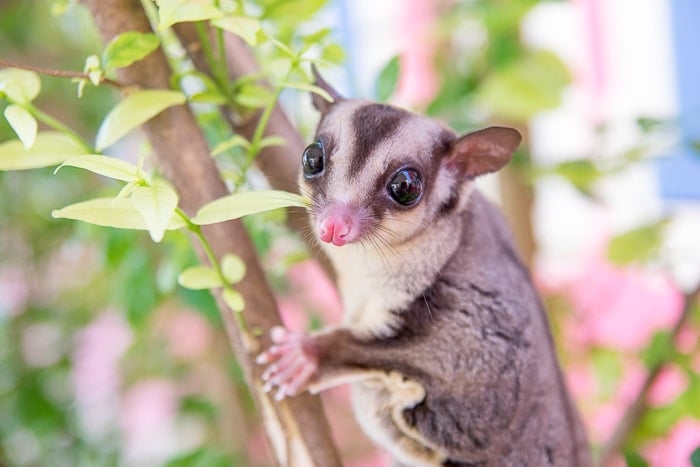
BORED:
If you have only one glider, chances are that they can become bored and lonely at times, especially when you are not around. They may bark or “talk”, trying to find a sugar glider friend.
Some believe that their bark has something to do with them being lonely and seeking attention from you or another sugar glider.
However, households with multiple sugar gliders have reported that their sugar gliders still bark even though they are together. So maybe barking doesn’t always mean that they are lonely
ANNOYED / EXCITED:
When you hear barking make sure to check and make sure there is nothing wrong with your sugar glider or their surroundings. Remember, sugar gliders rarely bark for no reason!
It may be as little and as simple as an empty water bottle or food dish in their enclosure, to as big as a predator near their cage.
So be safe versus sorry, and check on your barking sugar glider if their barking seems out of the ordinary or more abrupt than normal.
Other Noises Sugar Gliders Make:
- Crabbing
- Chirping/Purring
- Hissing
CRABBING:
Sugar gliders have a unique sound that some people describe as a swarm of locusts, with a noise that ebbs in and out with a high pitch.
Crabbing is considered one of the most common sounds that sugar gliders make and is usually the first sound that new sugar gliders owners hear from their new pet.
Crabbing is just a big act where your sugar glider is trying to be a brave, tough guy, and act bigger than they really are.
It commonly occurs during the early stages of bonding with the new sugar glider, while the sugar glider is scared and unsure of their new surroundings and new human.
Once a glider is well-bonded to humans, they will rarely make this sound.
The only other common time that they will make this sound is when they are suddenly startled or feel threatened by someone they don’t know.
- Sounds: like locusts, going up and down in pitch. It is loud and can be heard across the house, and is commonly heard repeatedly.
- Reason: fear, annoyance, warning call, cry for help or attention.

CHIRPING/PURRING:
Chirping is a soft purring or chirping sound.
It’s a sound that is made when a glider is expressing their affection to either their human or to one another.
Sugar gliders use chirping not only to communicate with each other, but also to communicate with their humans. Many people think that one of it’s their way of saying I love you.
Sugar gliders also chirp to their new babies while nursing.
- Sounds: like half-purring / half-chirping
- Reason: happy, content, expressing affection
HISSING:
Sugar gliders not only bark like a dog, they sometimes hiss like an angry cat.
Sugar gliders can make a gentle sneezing or hissing sound.
Most of the time, this “sneezing” or hissing is actually just a natural part of their cleaning and grooming ritual.
Sugar gliders will spit into their hands, making a soft sneezing sound, and then grooming their entire body with their wet hands. It's the sugar glider's version of a cat licking itself clean.
If you notice that they are doing it excessively, then it’s best to contact your local veterinarian right away for next steps on what to do next.
While this sound could be an indicator of a serious medical issue, such as a respiratory infection, in the majority of cases, it is completely normal.
- Sounds: like a snake hiss, very short and repetitive
- Reason: grooming/cleaning, agitation, or pain
![[Vet Explains Pets]](https://vetexplainspets.com/wp-content/uploads/2024/09/cropped-vetlogo-199x66.png)




